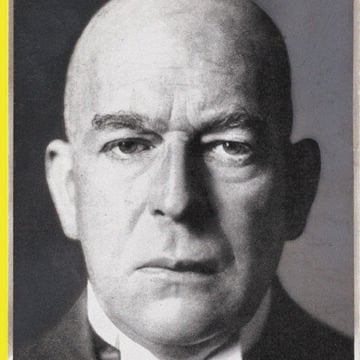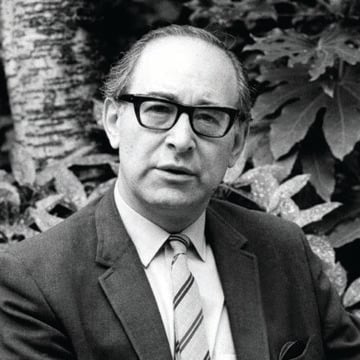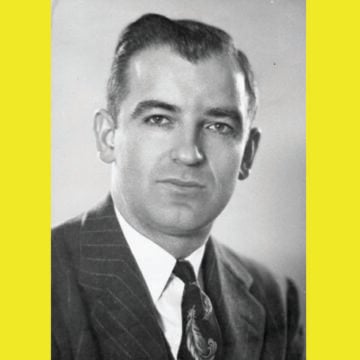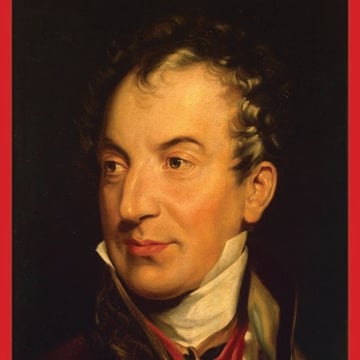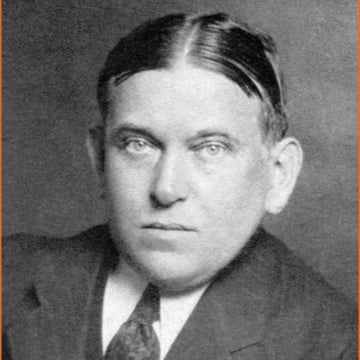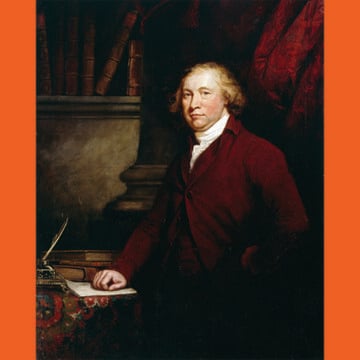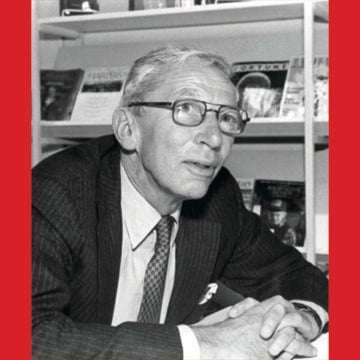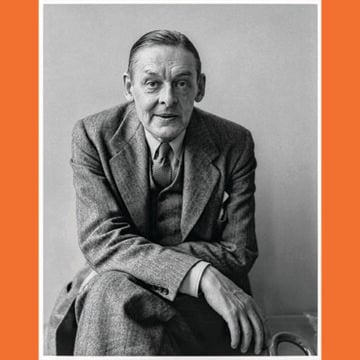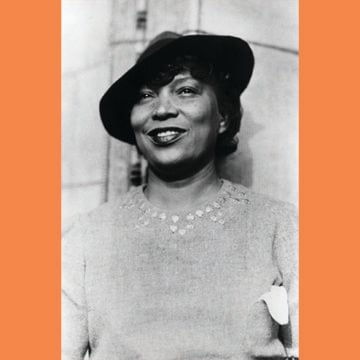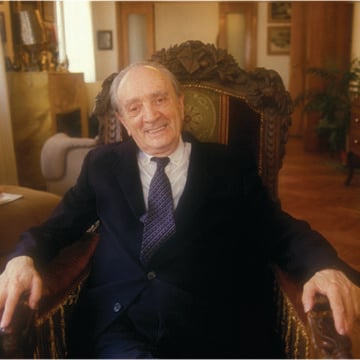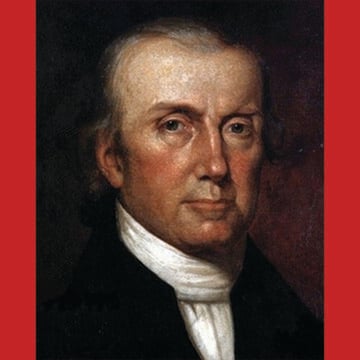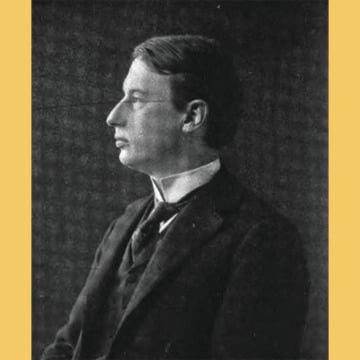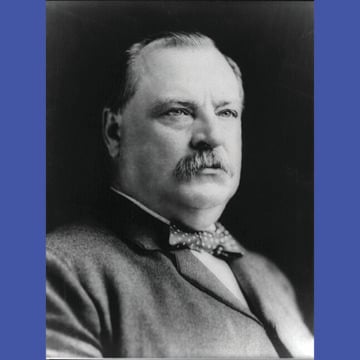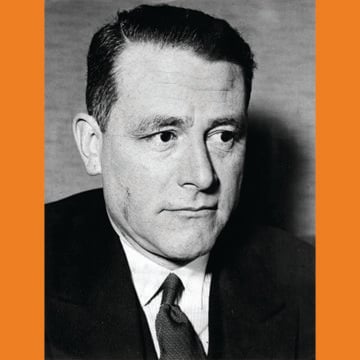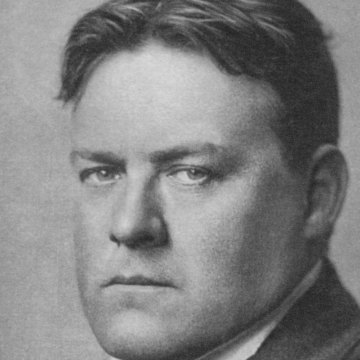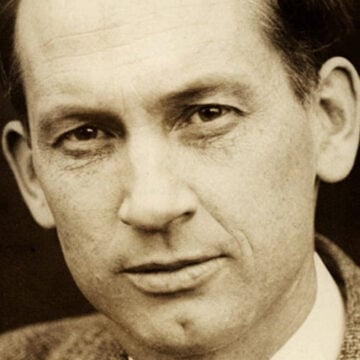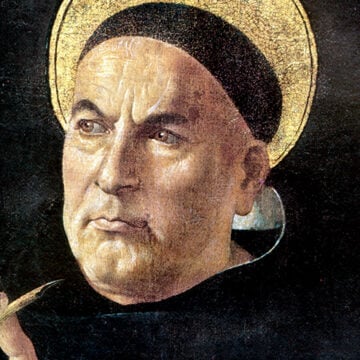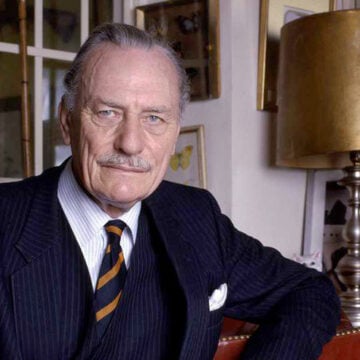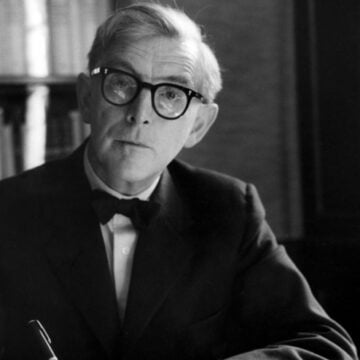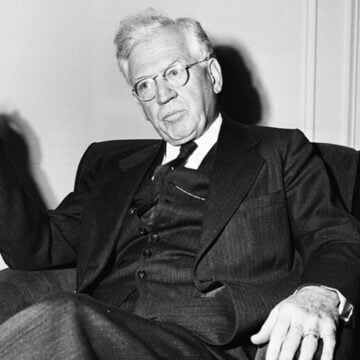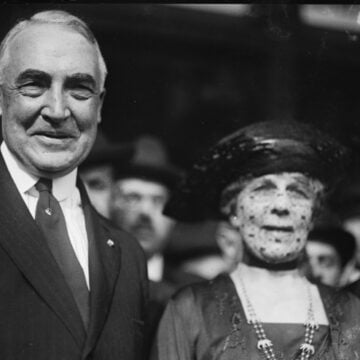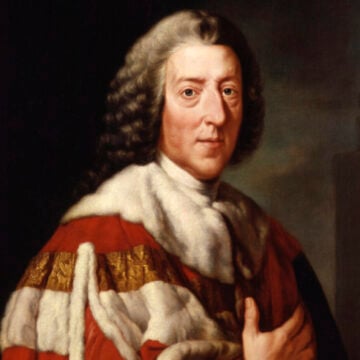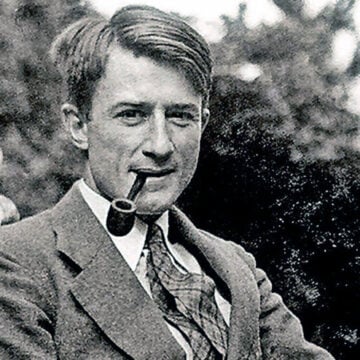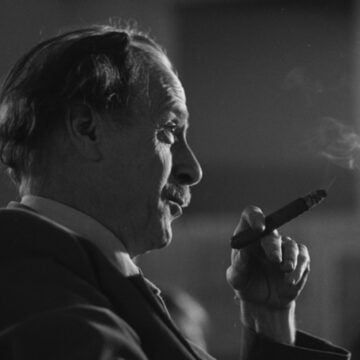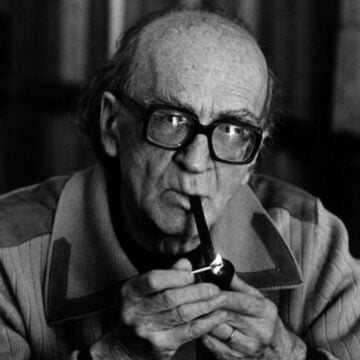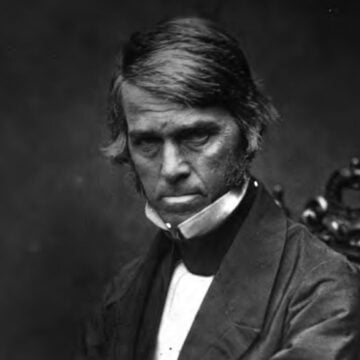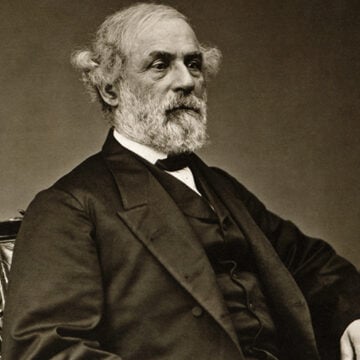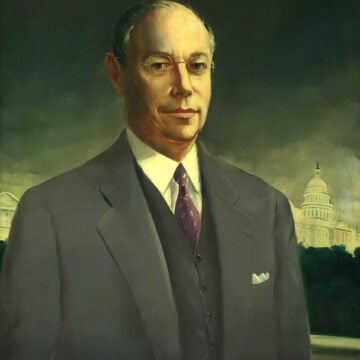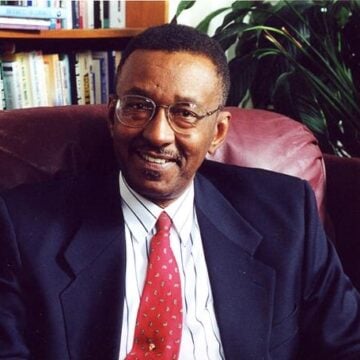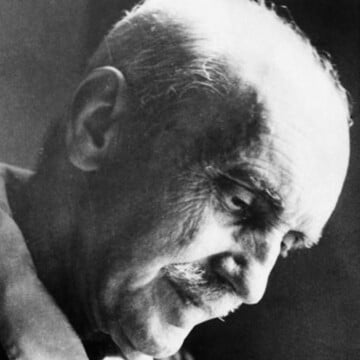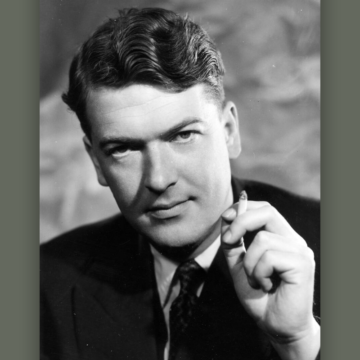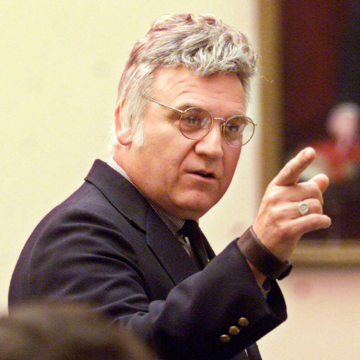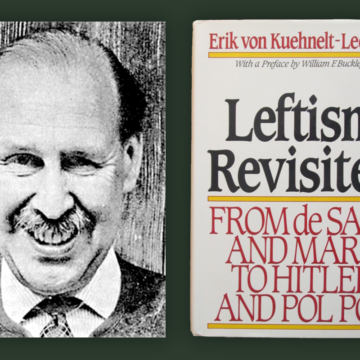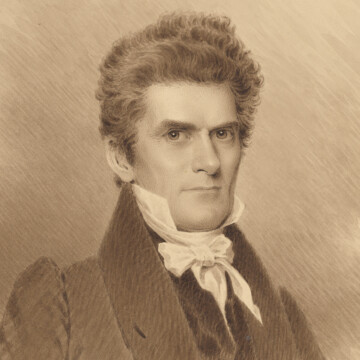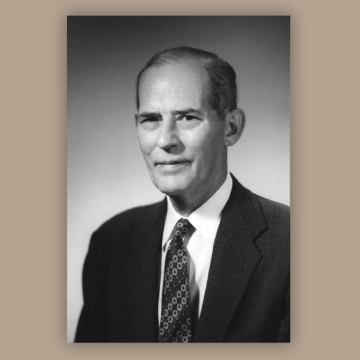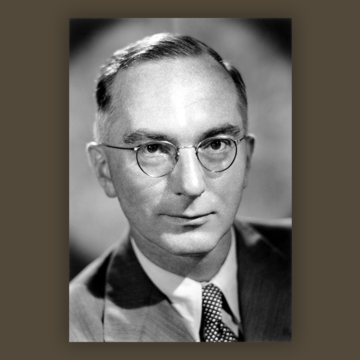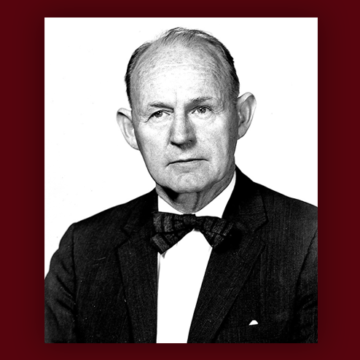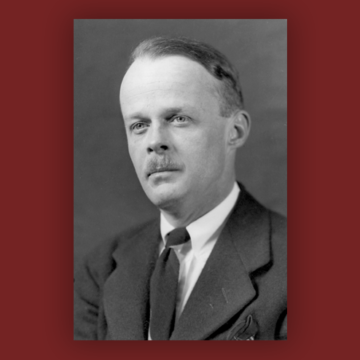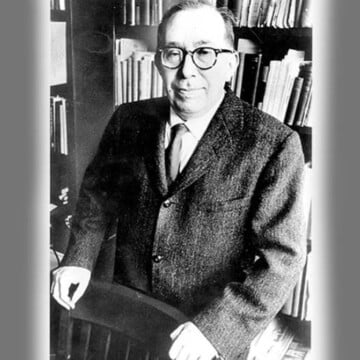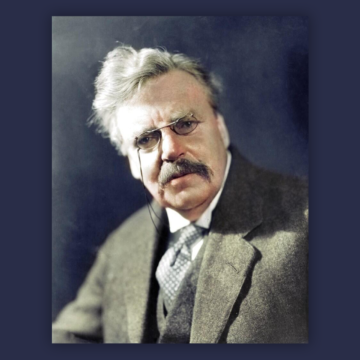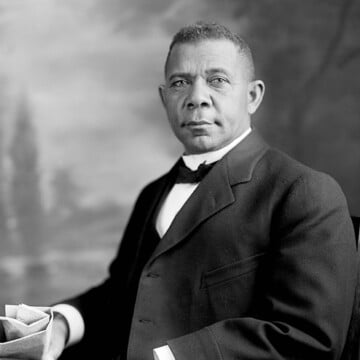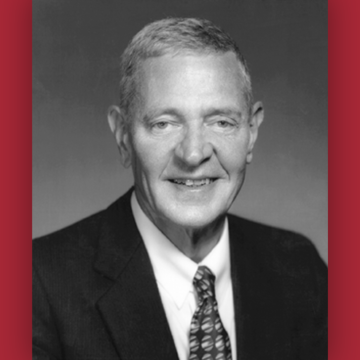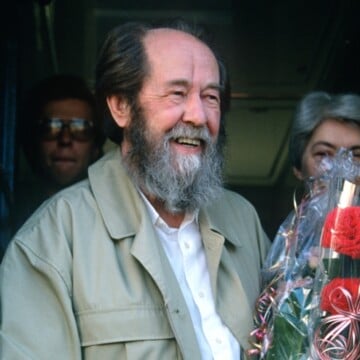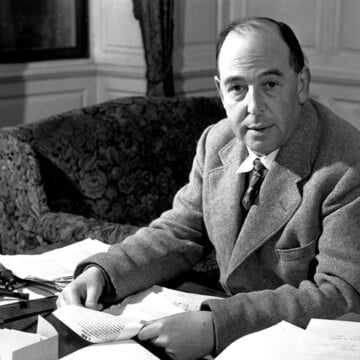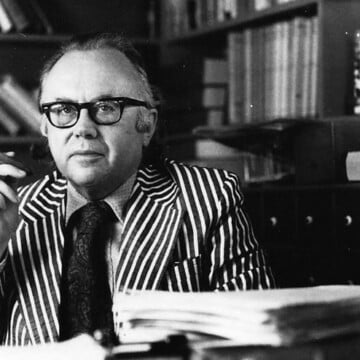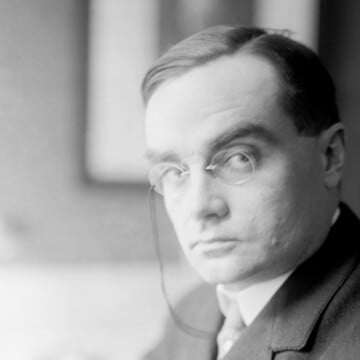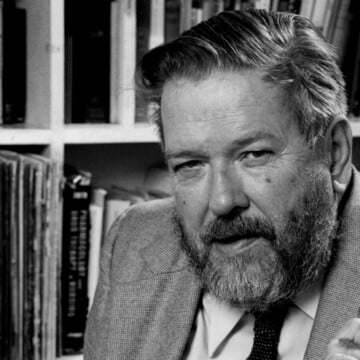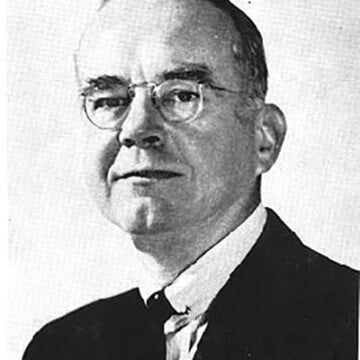Oswald Spengler confronted the progressive theory of history with his own cyclical theory and diagnosed the causes of the West's decline.
Category: Remembering the Right
Remembering Plinio Corrêa de Oliveira
Corrêa de Oliveira nursed a desire to restore the traditional Christian principles that have been the basis for the political and social order known as Christendom.
Remembering Thomas Molnar
At the heart of Thomas Molnar's work was the problem of authority and how it might be sustained in a world where power had been shorn of its sacral dimension.
Remembering Joseph R. McCarthy
Joe McCarthy was perfectly justified in using his political position to pursue an investigation of Communist subversion. There was nothing sinister about fighting communism as an ideology or resisting Soviet imperialism.
Remembering Klemens von Metternich
Metternich orchestrated a European balance of power, which ensured nearly a century of peace and flourishing, but he failed to deal with the forces of nationalism and liberalism.
Remembering H. L. Mencken
Critics have long considered H. L. Mencken to be impossible, meaning stubborn, difficult, exasperating. But today the appellation takes on a different meaning: His career and ideas simply would be impossible today.
Remembering Edmund Burke
Edmund Burke warned that the state seeking to re-order society tends to destroy the natural associations that alone make people decent citizens.
Remembering Edward C. Banfield
For decades, Edward C. Banfield taught within the Ivy League environment despite being a right-winger who favored empirical investigation over theories and feelings.
Remembering T. S. Eliot
T. S. Eliot was a traditionalist, but he was also an aesthete, one who defended the independence of art and lauded the highly individualistic work of various modern poets. The caricatures never do him justice.
Remembering Zora Neale Hurston
Zora Neale Hurston mocked the professional victims and race hustlers of her day and advocated for a positive, noncombative black identity. She was a woman of the right.
Remembering Augusto Del Noce
Augusto Del Noce viewed politics and philosophy as inseparably linked and believed that society had to be understood in reference to the history of its thought. He diagnosed Marxism as the deification of history.
Remembering John Taylor of Caroline
John Taylor of Caroline was a man of the American Revolution in whom the “Spirit of ’76” informed a conservative approach to understanding the powers of government.
Remembering Paul Elmer More
Paul Elmer More was one of several notable independent-minded scholars who criticized America from a broadly traditionalist perspective during the first half of the 20th century.
Remembering Grover Cleveland
Grover Cleveland, in all of his offices, from the first day to the last, steadfastly followed the principles of Jeffersonian conservatism.
Remembering Carl Schmitt
Carl Schmitt boldly addressed the most pressing political questions at a time of deep social and ideological division. His thought continues fascinating young scholars.
Remembering Hilaire Belloc
A dangerous mind rediscovered.
Remembering Harold Innis
Harold Innis consistently pointed to the recurrent historical pattern in which imperial centers control and exploit those who live on the margins of a political order. Innis warned that this dynamic would not disappear with the rise of mass democracy.
Remembering St. Thomas Aquinas
St. Thomas Aquinas is a universally admired philosopher who was able to distill the whole of human discourse. His thought even influenced America's Founding Fathers, as seen in the biblical ordering of the new American nation in the Treaty of Paris.
Remembering Enoch Powell
Excoriated as "racist to his bones" for speaking the truth about Britain's emerging immigration crisis, Enoch Powell and his "Rivers of Blood" speech continue to divide to this day.
Remembering Herbert Butterfield
Herbert Butterfield formulated a political theory of limited liberalism around his Augustinian Christianity, which tempered personal liberty with the recognition of man's fallen nature.
Remembering John T. Flynn
A relentless critic of FDR, John T. Flynn fought tooth and nail against the New Deal, corporatism, foreign interventionism, and the welfare-warfare state.
Remembering Warren G. Harding
Harding was a consummate conservative governed by humility, kindness, and charity for all: principles that guided him in both his personal life and his political career.
Remembering William Pitt
Long after his death, William Pitt is remembered as one of England’s finest statesmen, a man who valued his country's mixed constitution and unique combination of high regard for the rights of man and a stable social order where king, nobles, and commoners all had their place.
Remembering Michael Oakeshott
Michael Oakeshott warned that rationalism in politics leads to rigid, rule-bound governance, and to the imposition of the state's enterprise over and against the free association of individuals.
Remembering Marshall McLuhan
Marshall McLuhan argued that human beings simply cannot cope with the technological expansion of their senses through new media. He kept a close, critical eye on these emerging technologies all his life.
Remembering Shinzo Abe
Shinzo Abe was a strong and unifying leader of Japan, restoring a sense of national identity and tradition.
Remembering Mircea Eliade
Mircea Eliade wrote that modern secular man is haunted by the realities he has denied, which render the passage of time meaningless. The only defense against the ensuing terror is the sacred act.
Remembering Thomas Carlyle
Thomas Carlyle was a bundle of intellectual and literary energy in the Victorian age, but his forceful ideas may have even more relevance to our present-day problems.
Remembering Robert E. Lee
Forbearance is a moral principle from which General Robert E. Lee rarely if ever wavered, and his unflinching practice of that virtue is the primary reason that he should be remembered today.
Remembering Robert A. Taft
In a dynamic time of U.S. history, Robert A. Taft was a deeply principled politician, courageously speaking out against FDR's New Deal, U.S. involvement in WWII, the Nuremberg Trials, and the formation of NATO.
Remembering Walter E. Williams
Addressing a Boston anti-slavery audience in 1865, abolitionist Frederick Douglass asked, “What shall we do with the Negro?” The answer he provided was a favorite of the conservative economist Walter E. Williams, though if Douglass were to utter it today he would probably be condemned by Black Lives Matter and deplatformed from social media: ...
Remembering George Santayana
“Those who cannot remember the past are condemned to repeat it.” It would not surprise George Santayana (1863-1952) that his most famous aphorism is all he is remembered for, nor that it has become almost a cliché, nor that the Americans, whom he knew so well, would consider that they had heeded his lesson by...
Remembering Kingsley Amis
Queen Victoria’s corpse had hardly cooled before modernism in the United Kingdom rebelled against Victorian styles, attitudes, and mores. The ideas of arguably the four most important thinkers of the modern era—Darwin, Nietzsche, Marx, and Freud—were written during Queen Victoria’s lifetime but only gained influence after her death. So too did the literary high...
Remembering Jim Traficant
Donald Trump made headlines when he warned of illegal-immigrant drug runners and rapists pouring across the U.S.-Mexico border. But he wasn’t the first to do so. Ohio Rep. James Traficant, Jr., was well-known for voicing similar comments on any given morning from the floor of the House. Before there was Trump, there was Jim Traficant—the...
Remembering Erik von Kuehnelt-Leddihn
When Erik von Kuehnelt-Leddihn wrote his 1974 book Leftism: From de Sade and Marx to Hitler and Marcuse, he dedicated it to “the Noble Memory of Armand Tuffin, Marquis de la Rouërie.” Tuffin was a French aristocrat born in 1751, and one of the first Europeans to come to the aid of the American colonies—even...
Remembering John C. Calhoun
Though John C. Calhoun was a distinguished American statesman and thinker, he is little appreciated in his own country. Calhoun rose to prominence on the eve of the War of 1812 as a “war hawk” in the House of Representatives and was the Hercules who labored untiringly in the war effort. While still a congressman,...
Remembering Donald Davidson
Lewis P. Simpson, in his memorable preface to The Literary Correspondence of Donald Davidson and Allen Tate, evoked Thomas Carlyle’s description of Robert Burns to hail Davidson’s own achievement. Burns, wrote Carlyle, was a “piece of right Saxon stuff: strong as the Harz-rock, rooted in the depths of the world;—rock, yet with wells of living...
Remembering Eric Voegelin: Anti-Gnostic Warrior
That political ideology and activism have become a new religion is something the average individual sees signs of nearly every day. A black man is killed in an altercation with police and his face instantly becomes an icon to be carried in protests, his name a phrase to be repeated with adoration. A slogan such...
Remembering Andrew Nelson Lytle: Agrarian Prophet
In the early 1990s it was my good fortune to make a pilgrimage to meet Andrew Lytle on the occasion of the publication of his last book, Kristin (1992). A book-signing had been arranged by the University of the South in Sewanee, Tennessee, where Lytle taught for many years and edited the illustrious Sewanee Review....
Remembering Allen Tate: Radical Conservative
A French woman who met the American poet Allen Tate (1899-1979) in the 1930s remarked, “Monsieur Tate is so conservative that he’s almost radical.” Etymologically, “radical” fits Tate well; his conservatism entailed returning, in the face of destructive social practices, to fundamental truths and the established customs embodying them, many immemorial. He espoused the primacy...
Remembering Leo Strauss
The political theorist Leo Strauss (1899-1973) is perhaps an unlikely subject for Chronicles’ “Remembering the Right” series. Although no one can deny the extensive influence of his ideas on the conservative (and later, neoconservative) movement in America during the Cold War and beyond, Strauss usually gave the impression that he was not a conservative in...
Remembering G. K. Chesterton
Fashions do not feed us, they only ensnare us. They do not satisfy us, they only contribute to our ongoing dissatisfaction with the fleetingness of everything. But they always seem more appealing and urgent than what really matters and what will remain after the fashions have fled. English writer Gilbert Keith Chesterton (1874-1936) was once...
Remembering Booker T. Washington
When Booker T. Washington delivered his “Atlanta Compromise” speech in 1895 at the Cotton States and International Exposition, nearly 15 years after the founding of the Tuskegee Institute in Alabama, the effect was galvanizing. Frederick Douglass, until then the most prominent black American leader, had been in his grave only six months. Washington, now ascendant,...
Remembering George Carey
George Carey arrived at Georgetown University in 1961, the same year that I did. He was a young professor teaching courses on American government when I was a freshman in the College of Arts and Sciences, where he taught. My first experience with him as a student was notably unpleasant. Taking his first exam, I went...
Remembering Aleksandr Solzhenitsyn
Ours is an age of politicization. No matter the problem, real or imagined, proposed solutions are always couched in the language of politics. No subject can be discussed without constant reference to its political ramifications. Whatever position a political leader may adopt with respect to a current “issue,” it must be judged not by its relevance...
Remembering C. S. Lewis
C. S. Lewis (1898-1963) is arguably the most influential Christian writer of the 20th century. To tell the story of his life is to speak of a remarkable journey out of youthful skepticism into the joyful discovery of faith; of an embattled defense of traditional moral sanity; and of a profound artistry in the creation of...
Remembering Russell Kirk
Historians of the American right agree that Russell Kirk (1918-1994) was one of the key figures in the birth of the postwar conservative movement. Indeed, Kirk more than anyone was responsible for reintroducing the term “conservative” into American political conversation after its long domination by various strands of liberalism. The centenary of his birth in 2018...
Remembering Learned Hand
The name Learned Hand may not leap readily off the tongue if one were asked to list the conservative luminaries of the 20th century. Few people today outside the legal profession have any idea just how profound his influence as a jurist was and continues to be more than half a century after his death. His...
Remembering George Grant
The Unconventional Tory In an age beset by anxiety over the survival of the nation-state and social traditionalism, the Canadian thinker George Parkin Grant (1918-1988) is an indispensable guide to making sense of the modern predicament. Although he contributed to the field of political philosophy, his major works feel more like the stuff of prophecy. In...
Remembering James Burnham
The ideological trajectory followed by the first generation of neoconservatives, from their early fascination with Marxism during the Great Depression to their embrace of Cold War anti-communism and subsequent takeover of the Conservative movement, is by now a well-known chapter in American political history. The life and career of James Burnham followed a similar trajectory,...
